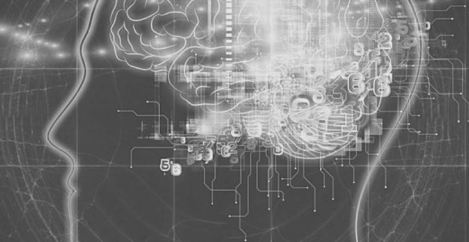October 5, 2018
Learning to learn will be key skill in new world of work
 A joint report by the Secretariat of the All Party Parliamentary Group on AI, Big Innovation Centre, and professional services firm KPMG has been published, identifying the key skills individuals and organisations will need if they are to survive and thrive in the unfolding future. The report finds that jobs in the labour market of the future will look very different from today and the transformation is likely to be dramatic. It also calls for companies and governments to equip citizens and employees for that future, to help them learn the new skills needed to be relevant in a world of constant transformation.
A joint report by the Secretariat of the All Party Parliamentary Group on AI, Big Innovation Centre, and professional services firm KPMG has been published, identifying the key skills individuals and organisations will need if they are to survive and thrive in the unfolding future. The report finds that jobs in the labour market of the future will look very different from today and the transformation is likely to be dramatic. It also calls for companies and governments to equip citizens and employees for that future, to help them learn the new skills needed to be relevant in a world of constant transformation.
The report identifies three key skills categories people will need in the future:
- skills to build/manage AI
- skills to work with AI
- skills to live in an AI-driven society
There will be an increased demand for “broad” skills and the most valued quality in people will be adaptability and the ability to learn.
AI will be key to this. Not only will it find personal solutions to help individuals develop their talents, it will be able to match these to a specific task.
Niki Iliadis, Innovation and Policy Foresight Manager at Big Innovation Centre said: “It’s now time for good policy makers and good companies to make sure people are ready for a future filled with AI.”
“In an agile, constantly-transforming future, the most important skills for an individual to be equipped with is learning to learn – the ability to process new information into knowledge. The borders between hard skills such as computer science and digital, and soft skills like creativity and problem solving, are merging together.”
Many aspects of our society will be revolutionised by AI. The pessimistic view is that many jobs will be automated, causing the much feared ‘AI replacing humans’ scenario. The optimistic view is that it represents an opportunity for unprecedented progress and an exciting opportunity to explore new jobs and frontiers.
Iliadis added: “Simply put – whether you are a doctor, a teacher, or an accountant, you will deliver the same outcomes, but with an all-new job description. It’s the way we work hand-in-hand with AI that will make the difference.”
Robert Bolton, Head of KPMG’s People and Change Centre of Excellence said: “The trick is to create organisations and societies that grasp the reinvention of workplaces to make the most of what humans can do, working with AI. This is not simply a challenge of coding, but of leadership, design, imagination and creativity.”
International companies are already developing programmes such as KPMG’s Workforce Shaping, in which clients learn to identify possible future scenarios and to use multiple mindsets.
The report calls for policymakers, organisations, and the wider society to work together to incentivise, encourage, and reward skills across the spectrum – helping build individuals fit for the agility of the future.















